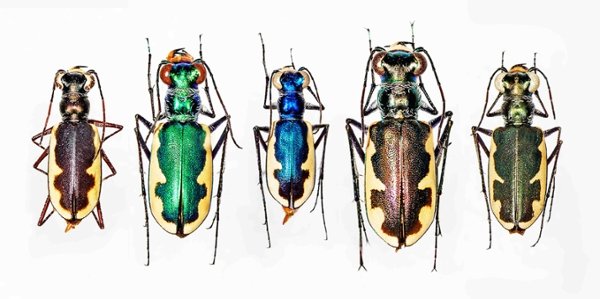Rowan prof devises new method for discovering species with enhanced DNA techniques and other identifiers
Rowan prof devises new method for discovering species with enhanced DNA techniques and other identifiers

Among the world’s leading experts on the predatory insects tiger beetles, Dr. Daniel Duran in the School of Earth & Environment has devised a new way to discover previously unknown species – and the technique is not limited to bugs.
Duran, an assistant professor in the Department of Environmental Science, is lead author for an article published March 19 in the prestigious journal Nature Scientific Reports about the revised approach to species identification and discovery. It’s an approach Duran says can be applied to far more than tiger beetles, though they and other insects are vitally important to the planet’s endangered biodiversity.
“This method applies to all types of life,” Duran said. “It could be used to find new birds or plants or gorillas or any other species as it addresses a fundamental problem.”
That problem, he said, is that DNA testing alone can be flawed if used as a sole identifier of new species.
Duran, who has discovered 14 species of tiger beetle, members of the family Cicindelidae, said he and other researchers often rely on DNA testing to discover new species but DNA alone can be inconclusive when forces like natural selection act upon some parts of the genome and change the genetic code, he said.
To further prove that an unrecognized species is really a new discovery, Duran and a team of co-investigators created a method of using DNA and other factors, like behavior, body part identification and geography, to conclude if an unrecognized species is truly new.
“We’re able to use sophisticated mathematical tests that show some genes are under natural selection and have been changed, and so they’re not giving a true picture of the (animal’s) history,” he said.
A prolific researcher who’s published 19 papers in the last five years, Duran (below) said the pace of his work is fueled in part by the dual climate and biodiversity crises, which are threatening the entire animal kingdom.
“Biodiversity is extremely important, especially to human survival, and we can’t conserve biodiversity if we don't know what all of the units of biodiversity are,” he said. “I study insects and insects help keep the world going.”
In addition to the work they do as pollinators, insects eat pests, digest dead logs and other detritus to create new soil, and perform a variety of other crucial environmental functions, Duran said.
His latest study, “Species delimitation, discovery and conservation in a tiger beetle species complex despite discordant genetic data,” explains the new method for identifying tiger beetles and the reason it’s so important: “In an age of species declines, delineating and discovering biodiversity is critical for both taxonomic accuracy and conservation.”